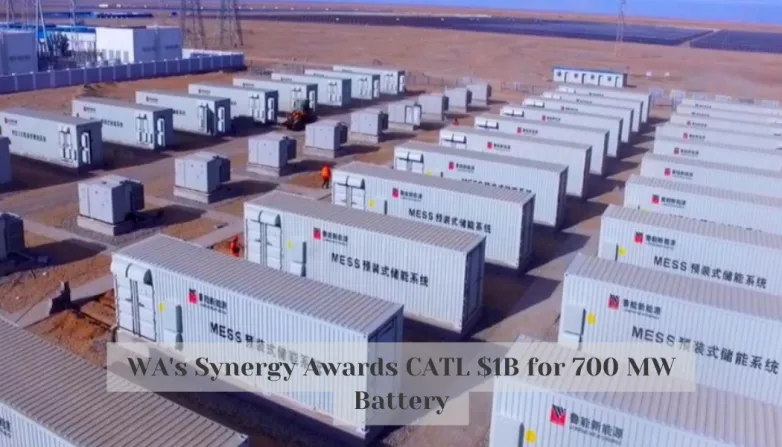WA's Synergy Awards CATL $1B for 700 MW Battery
- Western Australia government awards AUD 1bn contracts for 700 MW/2,800 MWh of energy storage projects. Premier Roger Cook touts move as "crucial" in transition to global green energy superpower. CATL to supply 300 & 650 EnerC Plus battery units & 72 & 160 inverters.

The government of Western Australia on Tuesday announced contracts for over AUD 1 billion (USD 643.1m/EUR 598.3m) worth of batteries for 700 MW/2,800 MWh of energy storage projects. The equipment necessary for two schemes, Kwinana and Collie, being developed by government-owned energy retailer Synergy, was awarded to China’s Contemporary Amperex Technology Co Ltd (CATL).
The 200-MW/800-MWh Kwinana Battery Stage Two will be equipped with 300 EnerC Plus battery units and 72 inverters, while the 500-MW/2,000 MWh Collie battery will be equipped with 650 EnerC Plus units and 160 inverters. Once in operation, the latter project will become the largest energy storage site in Western Australia.
The energy storage projects will store electricity generated by wind and solar parks in the Aussie state and inject it back to the grid during periods of high demand. Premier Roger Cook said this move was crucial in transitioning the state of Western Australia to become a global green energy superpower.
What Is the Impact of Western Australia's $1 Billion Battery Projects?
Impact of Western Australia's $1 Billion Battery Projects:
- Will provide renewable energy storage for the state, making it easier to access energy when demand is high.
- Will enable the state to become a global green energy superpower, and transition to a more sustainable energy model.
- Will provide job opportunities and economic growth for the state.
- Will reduce the need for traditional power sources like coal and gas, helping to reduce emissions.
- Will create a more stable electricity supply for the state.
- Will help the state become more energy efficient and reduce energy costs.
- Will improve the security of the state's power supply.
Also read

